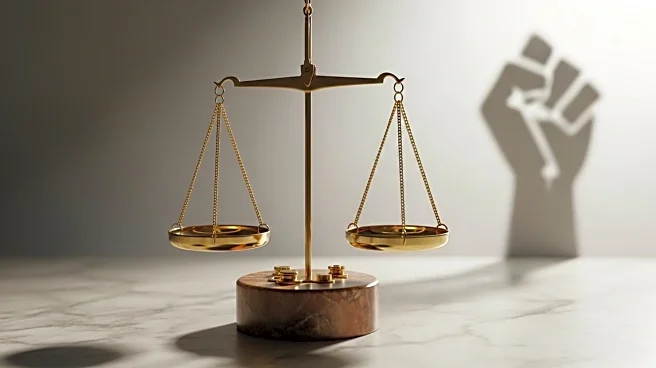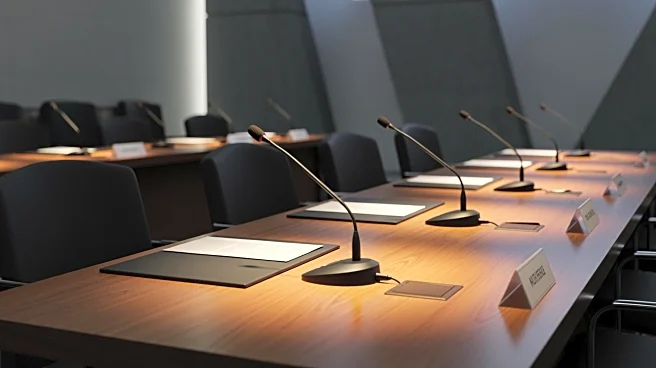What's Happening?
Jane Fonda has relaunched the Committee for the First Amendment, a coalition originally formed by Hollywood stars in 1947 to oppose the House Un-American Activities Committee and the Hollywood blacklist. Fonda, along with over 800 members of the entertainment industry, including Spike Lee, Billie Eilish, and Pedro Pascal, announced the revival this week. The group expressed concerns about renewed government efforts to silence critics across various sectors, including the government, media, judiciary, academia, and entertainment industry. The statement from the group warned of a return to a 'dark time' when the federal government repressed American citizens for their political beliefs. Fonda emphasized the movement's focus on creative, nonviolent noncooperation, citing actions like boycotting Disney+ after ABC suspended Jimmy Kimmel as examples of protest through participation.
Why It's Important?
The revival of the Committee for the First Amendment highlights ongoing concerns about freedom of speech and government censorship in the United States. This movement, spearheaded by influential figures in the entertainment industry, underscores the perceived threat to free expression and the potential impact on various sectors. The initiative aims to mobilize public opinion and encourage nonviolent resistance against perceived governmental overreach. The involvement of high-profile celebrities can amplify the message and potentially influence public discourse and policy decisions. The White House's response, defending President Trump's stance on free speech, indicates the political sensitivity surrounding these issues.
What's Next?
The Committee for the First Amendment plans to grow its movement through creative, nonviolent noncooperation. This could involve organizing protests, boycotts, and other forms of civil disobedience to challenge perceived censorship. The group's actions may prompt reactions from political leaders, media organizations, and civil society groups, potentially leading to broader discussions on free speech and government accountability. The movement's progress will likely depend on its ability to engage the public and sustain momentum in advocating for free expression.
Beyond the Headlines
The revival of the Committee for the First Amendment may have deeper implications for the cultural and political landscape in the U.S. It raises questions about the balance between national security and individual freedoms, and the role of celebrities in shaping public policy. The movement could influence long-term shifts in how free speech is protected and perceived, potentially affecting legislation and judicial interpretations of the First Amendment.








